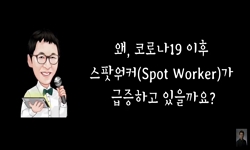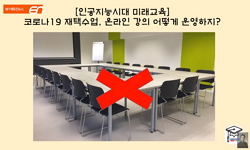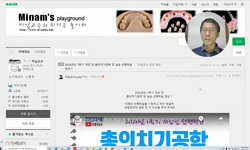China's tourism industry in 2019 accounts for 11.04% of China's GDP. Thus, it is easily seen that the sustained growth of the tourism industry is essential to China's economic growth. Tourism is sensitive, so it is easily affected by crises. Particula...
http://chineseinput.net/에서 pinyin(병음)방식으로 중국어를 변환할 수 있습니다.
변환된 중국어를 복사하여 사용하시면 됩니다.
- 中文 을 입력하시려면 zhongwen을 입력하시고 space를누르시면됩니다.
- 北京 을 입력하시려면 beijing을 입력하시고 space를 누르시면 됩니다.

코로나19의 발생이 중국관광산업에 미치는 영향 및 대응책 = The Phantom and Countermeasures of COVID-19 on the Chinese Tourism Industry
한글로보기https://www.riss.kr/link?id=A106920850
-
저자
an dong (College of Foreign Languages, Longyan University) ; LiuXiaogang (School of Economics and Management, Longyan University, China)
- 발행기관
- 학술지명
- 권호사항
-
발행연도
2020
-
작성언어
Korean
- 주제어
-
등재정보
KCI등재
-
자료형태
학술저널
-
수록면
309-325(17쪽)
-
KCI 피인용횟수
4
- DOI식별코드
- 제공처
-
0
상세조회 -
0
다운로드
부가정보
다국어 초록 (Multilingual Abstract)
China's tourism industry in 2019 accounts for 11.04% of China's GDP. Thus, it is easily seen that the sustained growth of the tourism industry is essential to China's economic growth. Tourism is sensitive, so it is easily affected by crises. Particularly in this year, the worldwide outbreak of COVID-19 has enormously affected of all major economic sectors and had a serious negative impact on the ever fast-growing China's tourism industry, which has brought China's economy to a standstill. The present paper analyzes how COVID-19 affects China's tourism industry and summarizes the impact mechanism by the inability of the supply of optical services, the mobility of tourism, the economic recession, and psychological factors. In the crisis management system, the tourism industry urgently needs the government's support policy (such as financial support, tax reduction, financial support, job maintenance, etc.), the association's countermeasures, and corporate countermeasures (industrial solubility, internal crisis management, etc.) in order to reduce damage and to expedite recovery. There still leaves a lot to do for retribution. Firstly, a faster early warning system is needed to respond to infectious diseases. Secondly, a support policy is needed for loans to small and medium-sized enterprises. Thirdly, maintaining a job is important, but it is worth paying attention to the unemployed. Fourthly, the competitiveness of government-funded companies should be increased rather than merely waiting for financial support. Fifthly, the government should release a policy to issue consumption coupons at the central government level for balanced development, showing the development of regional imbalances through the issuance of consumption coupons by local governments. Lastly, it is worth looking forward to the fusion of tourism and cultural industries, tourism and the Internet in order to increase the added value of tourism industry.
국문 초록 (Abstract)
2019년 중국 관광산업의 총규모는 중국 GDP의 11.04%를 차지하고 있어 관광분야의 지속적인 성장은 중국 경제 성장에 종요한 것으로 밝힌다. 관광산업은 예민성을 가지고 있기 때문에 쉽게 위기...
2019년 중국 관광산업의 총규모는 중국 GDP의 11.04%를 차지하고 있어 관광분야의 지속적인 성장은 중국 경제 성장에 종요한 것으로 밝힌다. 관광산업은 예민성을 가지고 있기 때문에 쉽게 위기에 의해 영향을 미친다. 특히 올해 코로나19의 발생 때문에 고성장을 하고 있었던 중국 관광산업에 심각한 영향을 미친 것이 사실이며 전 세계적으로 코로나19가 확산하면서 중국은 정체 상태에 빠지고 관광은 모든 주요 경제 부문에 막대한 영향을 미쳤다. 코로나19는 중국 관광산업에 어떻게 영향 주는 것을 분석하여 영향 메커니즘에 대해 광서비스의 공급불능, 관광의 이동성, 경제의 불경기, 심리적인 요인으로 정리하였다. 위기관리 체계에서 관광산업은 피해의 감소와 신속한 회복을 도모하기 위해 정부의 지원정책(금융지원, 세금감면, 재정지원, 취업유지 등), 협회의 대응책, 기업의 대응책(산업용합, 내부 위기관리 등)을 제시하였다. 대응책에 대해 보환할 여지가 있다. 첫째, 전염병 대응에 더 신속한 조기경보 체계가 필요하다. 둘째, 중소기업의 융자에 대해 지원정책이 필요하다. 셋째, 취업의 유지도 중요하지만 실업자에게 주목할 필요가 있다. 넷째, 재정지원보다 관관기업의 경쟁력을 높여야 된다. 다섯째, 지방 정부의 소비쿠폰 발급을 통해 지역별 불균형의 발전을 보이며 균형적 발전을 위해 중앙정부 차원에 소비쿠폰 발급 정책이 필요하다. 여섯째, 관광산업의 부가가치 증대하기 위해서는 관광산업과 문화산업의 용합, 관광산업과 인터넷의 용합을 기대할 만하다.
참고문헌 (Reference)
1 고계성, "전염병 위협에 따른 관광산업 위기관리 전략에 관한 탐색적 연구" 관광경영학회 14 (14): 1-17, 2010
2 권점옥, "국가 브랜드 이미지가 의료관광 목적지 선택에 미치는 영향 연구" 한국관광산업학회 38 (38): 57-76, 2013
3 한국관광공사, "관광위기관리 전략: 조류인플루엔자 등 전염병 발병 위기관리전략" 한국관광공사 관광테크놀로지본부 마케팅연구팀 2005
4 유지윤, "관광위기 유형화에 따른 위기관리 전략에 관한 연구" 한국관광학회 35 (35): 161-178, 2011
5 유지윤, "관광 위기관리의 이론적 모델 구축에 관한 연구" 한국관광학회 35 (35): 427-446, 2011
6 Meyers, G. C., "When it hits the fan: managing the nine Crises of business" Houghton Mifflin 1986
7 Zhang Jinfu, "Tourism safety management status analysis and countermeasures" (2) : 44-46, 2001
8 Pforr, C., "Tourism policy in Australia's northern territory: a policy process analysis of its tourism development masterplan" 4 (4): 275-307, 2001
9 Bao, J., "Tourism geography" Higher Education Press 1999
10 Blake, A., "Tourism crisis management-US response to september 11" 30 (30): 813-832, 2002
1 고계성, "전염병 위협에 따른 관광산업 위기관리 전략에 관한 탐색적 연구" 관광경영학회 14 (14): 1-17, 2010
2 권점옥, "국가 브랜드 이미지가 의료관광 목적지 선택에 미치는 영향 연구" 한국관광산업학회 38 (38): 57-76, 2013
3 한국관광공사, "관광위기관리 전략: 조류인플루엔자 등 전염병 발병 위기관리전략" 한국관광공사 관광테크놀로지본부 마케팅연구팀 2005
4 유지윤, "관광위기 유형화에 따른 위기관리 전략에 관한 연구" 한국관광학회 35 (35): 161-178, 2011
5 유지윤, "관광 위기관리의 이론적 모델 구축에 관한 연구" 한국관광학회 35 (35): 427-446, 2011
6 Meyers, G. C., "When it hits the fan: managing the nine Crises of business" Houghton Mifflin 1986
7 Zhang Jinfu, "Tourism safety management status analysis and countermeasures" (2) : 44-46, 2001
8 Pforr, C., "Tourism policy in Australia's northern territory: a policy process analysis of its tourism development masterplan" 4 (4): 275-307, 2001
9 Bao, J., "Tourism geography" Higher Education Press 1999
10 Blake, A., "Tourism crisis management-US response to september 11" 30 (30): 813-832, 2002
11 Akerlof, G. A., "The market for "Lemons": quality uncertainty and the market mechanism" 84 (84): 488-500, 1970
12 Hall, C. M., "The geography of tourism and recreation: environment, place and space" Routledge 2014
13 Feng Qiaobin, "The effects of COVID-19 epidemic on China’s finance and economy and relevant countermeasures" (4) : 15-21, 2020
14 Lerbinger, O., "The crisis manager: facing risk and responsibility" Lawrence Erlubaum Associates 4-7, 1997
15 National Bureau of Statistics of China, "Statistical communiqué of the People's Republic of China on 2019 national economic and social development" 2019
16 Commentator of China Tourism News, "Seize the historical opportunity of high-quality development"
17 장심렬, "SNS 관광정보의 특성이 확산성, 신뢰성 및 관광지 선호도에 미치는 영향 연구 - 한국을 방문한 중국관광객을 중심으로 -" 한국관광산업학회 39 (39): 25-45, 2014
18 Sun Gennian, "Research on life cycle and post-evaluation of tourism crisis by emergent event" (1) : 7-12, 2008
19 Jia Tu, "Reasons for the popularity of the game "Jedi Survival: Battle Royale" and its impact on the Chinese game market" (2) : 55-61, 2019
20 Coombs, W. T., "Protecting organization reputations during a crisis: the development and application of situational crisis communication theory" 10 (10): 163-176, 2007
21 Slovic, P., "Perception of risk" 236 (236): 280-285, 1987
22 Chen Yu, "On the expectation of tourists' consumption behavior after the end of the Covid-19 epidemic" (4) : 81-82, 2020
23 Huang Jin, "On the establishment of tourism crisis management mechanism" (4) : 76-79, 2003
24 Wang Lin, "On the causes and countermeasures of tourism decision-making risks" (1) : 29-31, 2001
25 Perrow, C., "Normal accidents: living with high risk technologies" Basic Books 1984
26 Richter, L. K., "International tourism and its global public health consequences" 41 (41): 340-347, 2003
27 Hermann, C. F., "International Politics and Foreign Policy: A Reader in Research and Theory" Free Press 1969
28 Ming Qingzhong, "Impact of Covid-19 pneumonia epidemic on tourism and coping strategies" (03) : 124-131, 2020
29 Lai Qihang, "How to attain the softlanding of tourism during the post-SARS" 4 (4): 61-64, 2004
30 Pearson, C. M., "From crisis prone to crisis prepared: a framework for crisis management" 7 (7): 48-59, 1993
31 Fink, S., "Crisis management: planning for the inevitable" Amacom 54-55, 1986
32 Glaesser, D., "Crisis management in the tourism industry" Butterworth-Heinemann 2003
33 Mitroff, I. I., "Crisis Management: Cutting Through the Confusion" 29 (29): 15-20, 1988
34 World Tourism Organization, "Crisis Guidelines for the Tourism Industry" 2003
35 Seeger, M. W., "Communication, organization, and crisis" 21 (21): 231-275, 1998
36 Shi Kan, "Beijing citizens' perception of the risk of SARS epidemic" 27 (27): 42-46, 2003
37 Dong Guanzhi, "Basic course of tourism" Tsinghua University Press 2008
38 Wei Xiaoan, "Analysis of the impact of tourism on SARS and the analysis of several related issues" 18 (18): 14-23, 2004
39 Zhu Feng, "A study of the financial performance of the tourism listed companies in China in international economic crisis" 34 (34): 62-69, 2013
동일학술지(권/호) 다른 논문
-
중국 호텔 기술기반셀프서비스(TBSS) 특성과 품질이 고객만족에 미치는 영향: 상호작용 욕구의 조절효과를 중심으로
- 한국관광산업학회
- 우츙
- 2020
- KCI등재
-
호텔종사원의 관계갈등이 이직의도에 미치는 영향: 리더십 유형별 조절효과
- 한국관광산업학회
- 김하얀
- 2020
- KCI등재
-
거제포로수용소 다크투어리즘 환경단서와 행동의도와의 영향관계 연구: 사전 배경지식 조절효과를 중심으로
- 한국관광산업학회
- 양진연
- 2020
- KCI등재
-
관광산업 여성종사원이 지각하는 자기효능감이 직업적응 및 경력성공에 미치는 영향에 있어 칭찬의 조절효과에 관한 연구
- 한국관광산업학회
- 박주희
- 2020
- KCI등재
분석정보
인용정보 인용지수 설명보기
학술지 이력
| 연월일 | 이력구분 | 이력상세 | 등재구분 |
|---|---|---|---|
| 2025 | 평가예정 | 신규평가 신청대상 (신규평가) | |
| 2022-01-01 | 평가 | 등재학술지 취소 | |
| 2019-01-01 | 평가 | 등재학술지 선정 (계속평가) |  |
| 2018-10-15 | 학회명변경 | 영문명 : Korea Tourism Industry Research Association -> Korean Tourism Industry Research Association |  |
| 2018-01-01 | 평가 | 등재후보학술지 유지 (계속평가) |  |
| 2016-01-01 | 평가 | 등재후보학술지 선정 (신규평가) |  |
| 2015-12-01 | 평가 | 등재후보 탈락 (기타) | |
| 2013-01-01 | 평가 | 등재후보 1차 PASS (등재후보1차) |  |
| 2011-01-01 | 평가 | 등재후보학술지 선정 (신규평가) |  |
학술지 인용정보
| 기준연도 | WOS-KCI 통합IF(2년) | KCIF(2년) | KCIF(3년) |
|---|---|---|---|
| 2016 | 2.12 | 2.12 | 1.86 |
| KCIF(4년) | KCIF(5년) | 중심성지수(3년) | 즉시성지수 |
| 1.72 | 1.69 | 2.283 | 0.35 |




 KCI
KCI KISS
KISS






